Comprehending the severity of an ALS diagnosis is difficult enough as an adult but imagine what it would be like as a young child. How do you possibly share that type of news with children in a way they can understand? Where do you even begin?
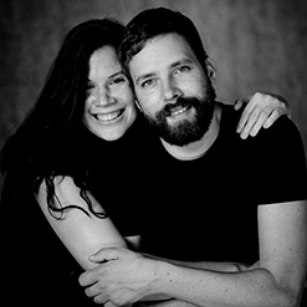
When Anjo Snijders was diagnosed with ALS in 2017 at the age of 35, he and his wife Sascha realized the vision of their future with their two young children in the Netherlands was forever changed. For both Anjo and Sascha, honesty with their children, age just seven and two at the time, was of great importance. Both teachers by trade, they began to look for resources to help explain their daddy’s illness, but found little if anything. And with that, the story of Luki and the Lights was born.
On a recent Connecting ALS podcast episode, we spoke with Anjo and the team at Big Grin Productions to learn more about Luki, the animated robot and star of short film, Luki & The Lights, in development to “shine light on ALS” and help explain the disease to young children around the world.
The transcript below has been edited for brevity and clarity.
Tell me a little bit about your history, your connection with ALS and how you got into the space.
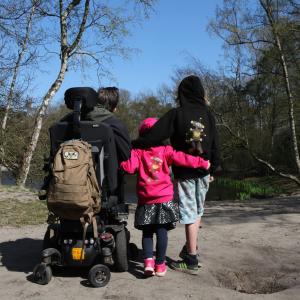
Anjo Snijders, Writer & Creator: “I'm 40 years old and I got diagnosed with ALS five and a half years ago. I was working full time in the Army back then, and I got the terrible duty to tell my children I had ALS and what that would mean for them. Even though I'm a teacher, it was the hardest conversation I had in my life. And there were no tools available to help me with that. And so my wife was also a teacher, and I decided to write a story that could help children and parents to have this conversation and share their story with their peers and their teachers and their friends. That's how Luki came to be.”
Did you recognize that there was a gap in terms of resources for kids to understand what was happening to you?
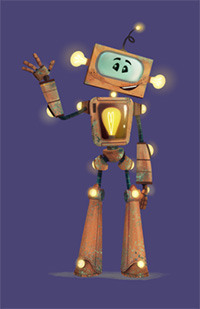
Anjo: “Absolutely, there was no real visual enticing material for children that on a basic level explained what ALS was and what it does. And we came up with the analogy for the light bulbs, and because Luki is a robot, you can literally open him up and look what's wrong. And also the robot, he's relatable for every ethnicity, every gender. Well, there's nothing not to love about Luki obviously, but we wanted kids to be able to relate to Luki, whether or not it was one of their parents or a friend or whoever fell with ALS. So that's some of the motivations behind Luki.”
So you have the concept, the idea of Luki. What was the next step from there?
Anjo: “Well, we wanted an animated film and we had absolutely no knowledge about what that would entail. So we thought, we'll find a college student who would like to do this over the summer or something, and then we fell into a rabbit hole and ended up on the west coast of the U.S., because that's where movies are made, and met up with Big Grin Productions. And they have guided us on the path of making a film along the way.”
(Toby Cochran, Director and CEO and founder of Big Grin) What did you know about ALS before you started this project, before they reached out to you?
Toby: “My producer, Adrian, actually knew more about ALS. I knew about it from the Ice Bucket Challenge, but to be honest, participating in that, I didn't really know where or what was going on with that disease, and the cause and with the foundation and things like that. But with all the projects that we take on, we do heavy amount of research with everything. So interviewing Sascha and Anjo, working with Dr. Melinda Kavanaugh on our team as well, just interviewing her and asking lots and lots of questions. And all of that goes back into every aspect of the storytelling, the designs, everything that you see and feel on the film is based on sort of truth and understanding of this disease, and for anybody around the world that's been affected by that.”
What's the goal of the movie in terms of... What are you hoping the target audience takes away or learns by the end of the film experience?
Anjo: “We want to empower children and parents to talk about this, to talk about what ALS does to their lives. Because a lot of times children become isolated and it's hard for them to talk about it with their parents, but also with their peers and their teachers. So we want Luki to bridge that gap and empower them, give them words, which is odd because Luki, the film is a languageless film, there's only robot gibberish in the film, but there's a good reason for that. We want this to be universal. We want this to spread over the world. And even in places where even less tools and materials are available to children, this can shine a light on ALS. So that's very important to us, the empowering of parents and children. A lot of parents have difficulties talking to their children about it, and we want to help them and give them something just a little help to find the right words to explain it, and also to show them that it's okay to discuss this with children.”
(Adrian Ochoa, Producer:) You're not just somebody working on the film though. You also have a personal connection to ALS.
Adrian: “Yes. My personal connection to ALS is that my grandfather passed away in 1994 of ALS.”
How did that experience impact your approach to the work on Luki and the Lights?
Adrian: “It's actually brought back a lot of memories that I haven't thought about in a long time. When he got diagnosed, he passed away within a year, but learning more about the disease and it just brought back so many memories during that time that we were with him.”
(Diana Hernandez, Luki’s Chief Marketing Officer): Any other thoughts about the process of making Luki and the Lights?
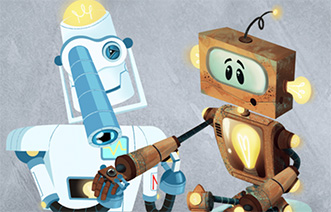
Diana: “One of the key important elements of Luki and the Lights is we see this beautiful, charming robot that has light bulbs. In the beginning of the movie, we see him living a great life, his day to day, and much like many people that are diagnosed with ALS, something doesn't work quite as intended that causes that red flag of something's going on. We will see Luki go to the doctor and have that experience of being diagnosed and being told that he's diagnosed with ALS. And then we see his journey and how he responds to his diagnosis.”
“And we also see his friends around him that help him and are part of the caregiving process because we recognize that yes, it is somebody that is diagnosed with ALS, it is also an entire community that comes together and supports. And that's very important that we learned in connecting with Sascha and Anjo, of how it truly has been their friends, their family, even their children that have stepped into a caregiver role. That's important to showcase in this film. Yes, it's for the community and also for the people that are not engaged in the community. It's similar to the way they know the Ice Bucket Challenge. We really want the world and be aware of what is ALS and inspire hope and a generation that doesn't have to live with this disease.”
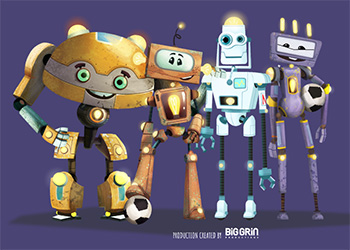
According to Toby, the film is approximately 60 percent complete and there are currently 77 artists from 15 different countries who are working to bring Luki to life, the majority of which have been impacted directly by ALS, having either a family member or friend fighting the disease or who passed away from it. “So for a lot of them as well, this is the first time a character in animation has ever depicted this disease,” he said. “So a lot of people on our team and others as well, as we're starting to share this with the world, are very excited to see what Luki's going to do for the community, and for the world.”
Additional educational resources about ALS for children, teens, and young adults, developed by subject matter expert and advisor of Luki & The Lights, Melinda S. Kavanaugh, PhD, MSW, LCSW, can be found on our website HERE.
CLICK HERE to listen to the full Connecting ALS podcast episode with Anjo, “Helping Kids and Communities Understand ALS Through Animated Film.” You can subscribe to Connecting ALS at ConnectingALS.org.
To continue to follow stories about people living with ALS in the community and learn more about the disease, subscribe to receive our weekly blogs in your inbox HERE or follow us at als.org/blog.
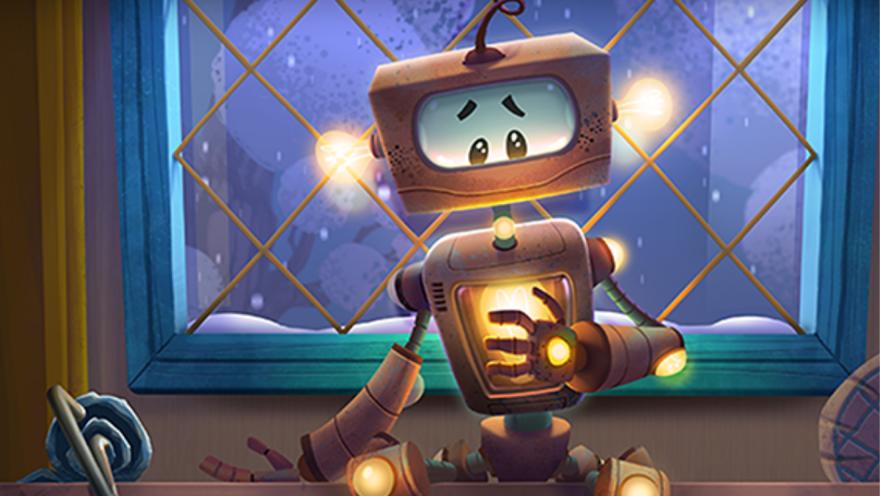

Join the conversation. Please comment below.